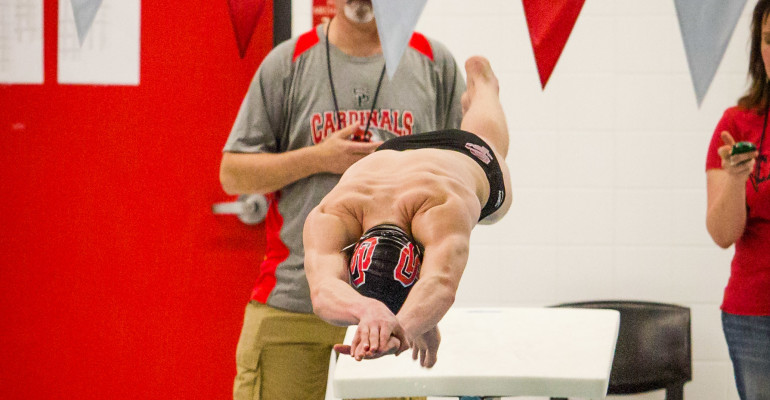Three Reasons Why Swim Teams Matter
Blog By: Michael Popke, Owner of Two Lakes Media
One spring morning in 2004, my life changed for the better. That’s the day I officially became a swim dad. Since that time, I’ve spent a good chunk of parenthood on the decks and in the stands at countless indoor and outdoor swimming facilities all over southern Wisconsin — watching my son and daughter compete at the recreation, club and high school levels. I became more involved in the sport than ever by jumping back into the pool after a long absence, working as a stroke-and-turn official, writing about the sport for local media outlets and proudly advocating aquatic activity.
Your facility, no doubt, is filled with people like me on a weekly or even daily basis. My wife and I pay team membership fees that in turn cover pool time that in turn help keep the water moving and the revenue flowing.
I covered the aquatics industry for almost 15 years as managing editor of Athletic Business magazine — and now as a freelance writer for multiple publications — and I’ve interviewed countless pool operators who embrace swim teams and their parents.
While facility operators recognize the value these outside groups bring, I also know, based on personal experiences and those of other swim parents (we’re a tight-knit group), that administrators often don’t.
Some of those administrators prefer to stay out of the pool area as much as possible. After all, it gets pretty warm in there. Plus, they might get wet. A lack of understanding leads to a lack of interest, which can lead to the false impression that — for a variety of reasons — swim clubs are more trouble than they are worth.
Here are three reasons why they’re wrong about that:
1. Swim teams can be a major source of revenue.
Depending on the programming schedule at your facility, it might be possible to schedule practices and meets for one or more swim teams throughout the week and on weekends. Plus, a home school swim team might be able to fill some of those weekday downtimes. The USA Swimming club in my city also offers a Masters Swimming program for adults, which provides further revenue-generating opportunities. Remember, in many communities, pool time (just like ice time for hockey) is at a premium. Some teams are willing to pay more than others for the opportunity to practice and host meets at your pool — especially if you and your staff create a welcome and clean environment for them.
2. Swim teams are autonomous.
Most of them are parent-run organizations, with volunteer board members who oversee everything from meet management to concessions operations. They handle set-up duties, they find the officials, they often provide their own security and they even clean up after themselves. In return, all they typically ask the facility to provide is a pool manager and lifeguards.
3. Swim teams help build healthy communities.
Swimming is a lifetime sport, and kids on swim teams, regardless of their skill level, exercise every day. They’re learning a skill that can save their own life or that of someone they love. And they grow up with a desire to share what they know. My 19-year-old daughter no longer swims competitively, but she lifeguards, teaches swimming lessons and recently began coaching for our local USA Swimming club that didn’t even exist a few years ago. Before my school district opened a new high school six years ago with an eight-lane pool inside, the community still boasted a successful recreation swim team. But young swimmers looking for a greater challenge were forced to join clubs in neighboring cities. Today, the high school natatorium serves as headquarters for our own USA Swimming team (and Masters program), our girls’ high school swim team consistently ranks among the top ten in Wisconsin, and our city’s rec team won the eight-city Tri-County Conference Meet last summer for the first time since 1987.
Good things happen in communities that make swim teams a priority.
*Photo Credit: Nicole Hoffmann/Nicole Hoffmann Photography
Michael Popke is an award-winning journalist and owner of Two Lakes Media Group, a writing, editing and content marketing company based in the Madison, Wis., area. For 14 years, he was managing editor of Athletic Business, the leading business-to-business magazine and website for athletic, fitness and recreation professionals. He also is a swim dad; has coached baseball, basketball and softball; worked as a USA Swimming stroke-and-turn official; and is an avid high school sports and aquatics safety supporter. He would like to swim faster. For more information, please visit his website at www.twolakesmedia.com and follow him on Twitter @michaeljpopke and @TwoLakesMedia.


Comments are closed.